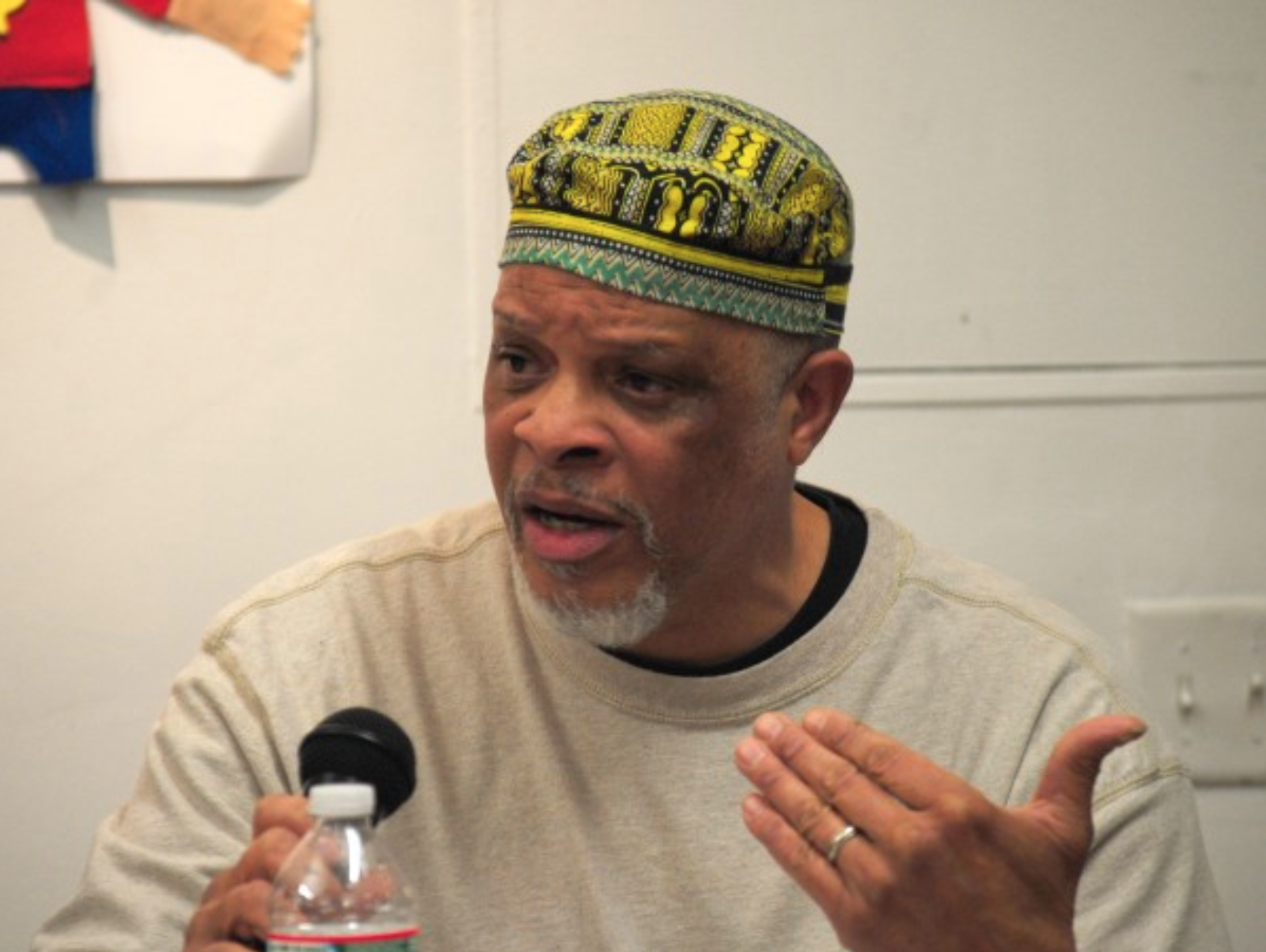AMW English, July 30, 2020
Ashanti Alston is a father, an anarchist, a prison abolitionist, and a former member of the Black Panther Party and Black Liberation Army. He was a political prisoner for over a decade and continues to work with the Jericho Movement to free all political prisoners. Treyf Podcast talked with Ashanti about his life, his political work with the BPP & BLA, state repression, prison abolition, and his thoughts on the current political moment.
Ashanti Alston: My name is Michael Ashanti Alston and I’m sixty six years old, father of five. The two young ones here are seven and ten. I’m a former member of the Black Panther Party in Plainfield, New Jersey. I went through a lot of repression from the state so I went underground and was captured. Did a total of 12 years in prison. But in the course of that, I continued to evolve towards a more anarchist perspective and a more abolitionist perspective. And so from years and years in New York, I moved to Providence, Rhode Island, got married, and that’s our ten and seven year old. I am a guy with a sense of humour. I am also a guy that likes to reach out to those in our community who have been silenced, because I know that we all need to figure out ways to participate in this struggle to change the world. And that’s pretty much me. If people know me, they know that I still believe in revolution, I’m still an anarchist, I’m still doing what I can to change this empire that we live in right now so that people can be free in the many different ways that we deserve. And that’s me. And I’ll leave it at that for now.
You grew up in Plainfield, New Jersey, what what was it like growing up in New Jersey?
Plainfield is a small town in New Jersey but there was a demarcation, a clear demarcation where the Black community resided and the white, the larger white community. And I think that what was important about being small is how there was a lot of community. We knew everybody in the neighbourhood, the kids, we could hang out, you know, go around the corner, visit people, play with the other kids and be regulated by parents, other parents, and all that stuff there. But what began to happen as I got older was realizing that there’s this thing called racism, you know. Police who were always telling you what to do. And then being able to watch the news. That on the news was the Civil Rights Movement, and people fighting back. People marching, people doing sit ins, all this stuff here. And for me, trying to understand that as this kid was profound. Because we knew that this was for us and it just didn’t seem right that it was getting attacked, you know. Well even in Plainfield, a very racist town, there was a rebellion in Plainfield in conjunction with other major cities like Detroit and Newark, places like that. But Plainfield’s was significant in the sense that in the area that it jumped off was the area that I had formerly lived in, and still had deep connection with people there. But the police was harassing someone and people just came to the aid of this person that was harassed. And it got violent. Folks found this gun manufacturing place close by and they went in there and they just ripped off crates of M1 rifles. And so the police, when they tried to get control of this area, they was run out. And then the state troopers came, and they were run out. And then when the National Guard came it was a stand off. But I lived about maybe half a mile away and everybody was on their porches, or in the streets, you know, listening to the gunfire or trying to stay up on the radio news what was going on. But they had blocked off certain streets right at the intersection from where we lived. And at some point there’s tanks there, there are soldiers there, and they’re stopping all the black cars, but they’re letting all white cars go. When they stopped the black cars, they are harassing the drivers and the passengers. Then I could see the rage building up in my older brothers and his crew and others. And then folks was taking off, going to join this rebellion. But for me, as just becoming a teenager, it was profound in the sense that I see my people fighting back. So not only on television, but here in my very neighborhood. It was my entry into what I wanted to do with my life. I want to be someone who fights back. I want to be someone who organizes. I want to be someone who’s conscious. And it’s similar stuff that goes on even today. And one never knows how those circumstances is going to shape anybody. But oppression breeds resistance for real. It is very true.


